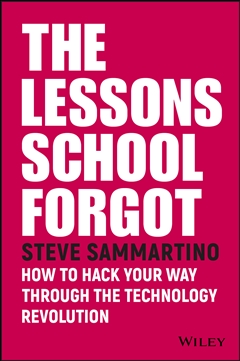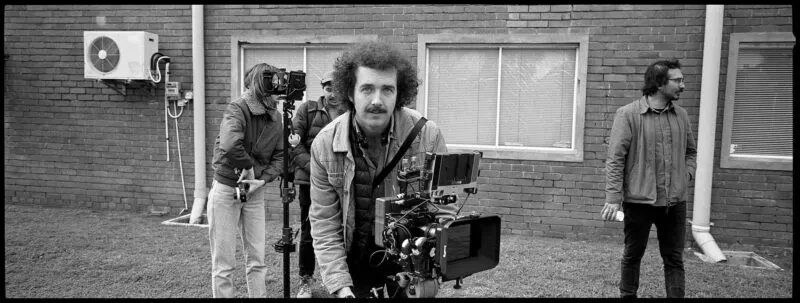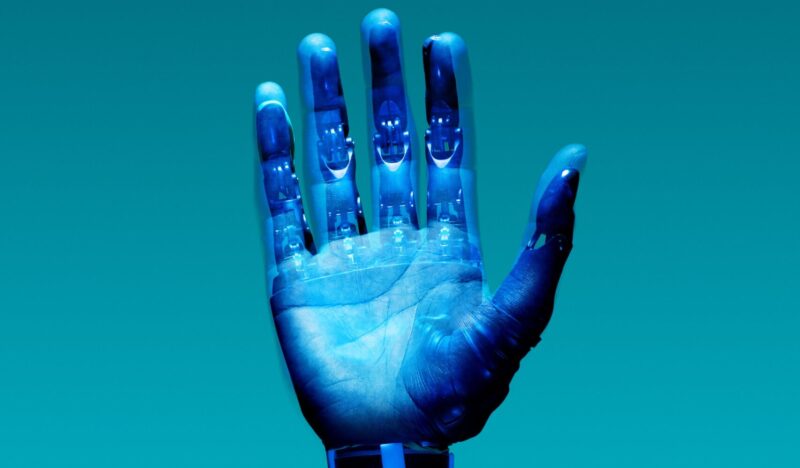How to NOT fear ‘the Robots!’
My favourite irony right now is the inertia and fear about the robots coming to take our jobs. My question is why are most of us ‘acting like pre-programmed robots’ with the inability to re-write our own internal software code to do new things? No wonder many of us will get replaced by robots. We are already acting like them!
The media are doing a pretty good job of scaring everyone, that pretty much no one will have a job in the near future and we’ll be living in a post robot dystopia. Apparently 40% of us will be out of work. A handful of big companies will own pretty much everything and our only hope of survival is a Universal Basic Income.
Good news, I am about to debunk a good chunk of this. And, while I am at it, I will remind us of a few important things we can do to make sure the world we are creating is one we want to live in.
AI, Robots and the Pace of Change
The pace of change is super radical. It is not only moving fast, but it is actually accelerating. The fact that our technology is not only cheap but networked is creating a positive spiral of knowledge advancements. People building on each other’s developments and platforms in a way humanity has never done is allowing artificial intelligence, robotics and pretty much everything with digital cognition to exponentially improve. Technology isn’t just getting a little better, but doubling in effectiveness every year or so.
There are more than 100 technologies that follow this trajectory, and like all revolutions, many are converging to create a pace of change unforeseen. So, the robots, voice recognition software and AI’s won’t just be as good as humans at rational thought, they’ll be better than us in every category.
The bit I have to agree with here is the fact that a lot of work will be done by the bots, maybe even some jobs. But in truth, there aren’t that many bison hunters around anymore, and 10 years ago there weren’t any app developers either.
Work is in a constant state of flux. Some jobs drop off and some new ones arrive. It has always been this way, the only difference is that during revolutionary times it happens quicker, people panic and the media eat it up.
History says, we’ve been here before. At the dawn of the industrial revolution when the combine harvester was invented, 90% of people worked in agriculture, today it is less than 1% of the population in modern economies such as ours. We found something else to do. We will find something to do this time as well, I just can’t tell you what it will be.
Ten years ago, I couldn’t have predicted people would make a living doing small screen UX design, run TV channels from their bedroom or become robot ethicists. What we are about to live through is an adjustment, and it will be painful for many people, and while none of us can stop technology (it kinda has its own agenda) we can adapt to the world it seems to be creating, and both time and access are on our side. It’s more a question of whether we choose to be victims or opportunists.
Simple Economics
Let’s start with some simple economics, so simple it will sound almost crackpot. Once money enters an economy in real terms, beyond paper valuations, it never leaves. All the money that makes up an industry, a market or an economy is based on humans literally inventing money. We put the factors of production together for a price, lower than our cost of production, and the resulting profit is money we have invented. Starting with basic human labour, raw materials on earth and ingenuity, new things, services and solutions to people’s problems, we invent money and grow the economy.
Now, when things change – like it does when a better or cheaper option comes along – all that happens is that the money changes places. The money doesn’t evaporate, it just gets spent on something else.
Think of $100 in your pocket. In 1990 you may have spent $20 on getting pictures from a party developed, or $30 on a Nirvana CD. Today that money goes elsewhere.
What we need to do then is simple. We need to have the maturity to admit if we are a metaphorical CD or roll of film. Is our labour likely to be replaced by the bot? If it is, it is time to change, to adapt and become something new, something more and cut new ground, find a more fertile ecosystem.
Speaking of ecosystems there is another reason we do not need to worry all that much about 40% of jobs disappearing. Some simple things happen when jobs go away. The first thing that happens is that prices go down relative to the reduced cost of production. It is where the net technology advantage usually comes from.
On top of this, none of the corporate beneficiaries of introducing AI and robotics want us to lose our jobs either. Wages and sales are essentially the same thing. They are just opposite ends of the same equation. If it were that 40% of those displaced technologically, who couldn’t find alternative employment, it wouldn’t be long before the size of their market declines by a similar amount as well.
Unfortunately, robots do not buy things – not yet anyway! Without us, our income and our expenditure, there is no economy. The world’s biggest firms don’t sell Lear jets, they sell products to us – the 99%. In the long run, they need us to be earning as much as we possibly can. Otherwise we die together.
UBI – be very skeptical
Ever notice how many of those espousing the virtues of Universal Basic Income (UBI) are also the people creating the technology which will replace human labour. Largely monopolies who are the beneficiaries of the emergent order and trajectory. It is for this reason that we have to be very wary of anyone espousing the virtues of UBI – Universal Basic Income.
It is their ‘get out of jail free’ card. A UBI is a great way for them to obfuscate their inordinate power and profitability, so they can carry on unchecked for antitrust violations. A full UBI is a pretty bad idea for a simple reason – it cedes control to corporations and removes the responsibility for regulation which increases competition and assists building the infrastructure.
A better option is for the regulators to do their job and tax companies at rates that allow retraining to be funded, and income and power to be redistributed. In truth, we already have quite a few UBI’s in place in most developed economies such as unemployment benefits, pensions, disability pensions, study allowances et al, but it is always a bad strategy to wait, or hope the government will do the right thing our best approach is to reinvent ourselves.
We ought act despite them, and know that a UBI will not facilitate a standard of living anyone desires. It will just perpetuate the power structure of the 1 percent.
So what to do?
While the change is rapid, for the first time in history, anyone can learn anything, on-line and mostly for free. No matter what our job or career path happens to be, we can lean into the technology likely to disrupt it and become the expert in the forces that disrupt what we do today.
We can learn more, and ensure the market values what we do. No one owes you a living. There will likely be less time to watch Master Chef. We might need to master some new skills. Maybe even work up a sweat and do some hard stuff. But it is not as if we do not have access to the resources to reinvent ourselves.
Never in the history of humanity has this much knowledge and possibility been at our fingertips. Do not forget, only 150 years ago most people could not read – they adapted.
The only question is ‘will you lean into the technology, or dream of yesterday when life was comfortable?’
When we were hunters and gatherers, we had to be nimble. If you sensed danger, you had to do something. Farmers had to adapt to emergent weather and unplanned droughts and floods. Somewhere along the way we got lazy, as our houses were always warm and the fridges always full.
It is time for self-reliance to make a comeback, and fortunately for everyone reading this we have been given the dignity of choice. We can take advantage of the resources to re-learn, or we can become victims of the inevitable – I know which path I am choosing.
………………………….
Find more about me, keynote speaking opportunities and how to connect via your preferred social channel at www.stevesammartino.com
And grab a copy of my recently released (second) book ”The Lessons School Forgot” here or at all good book sellers (hassle them to stock it if they don’t have it!)

The blurb …
“In simple, straightforward terms, futurist and born entrepreneur Steve Sammartino, shows you how to:
- ‘unlearn’ bad habits school taught you
- discover how to work the digital economy
- invest only your time and reap a substantial lifelong return
- transform your life and carve out a new path to independence.
Inspirational, instructive, subversive, and with a wealth of insightful guidance, The Lessons School Forgot will help you to break from a lifetime of legacy programming and take full advantage of the technology revolution.”
Thanks!





